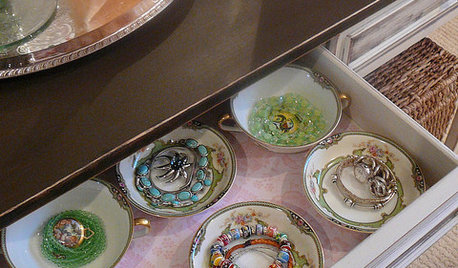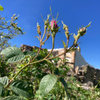anyone use Bayer 3 in 1 product ?
ilovemyroses
12 years ago
Related Stories

LAUNDRY ROOMSThe Cure for Houzz Envy: Laundry Room Touches Anyone Can Do
Make fluffing and folding more enjoyable by borrowing these ideas from beautifully designed laundry rooms
Full Story
KITCHEN DESIGNThe Cure for Houzz Envy: Kitchen Touches Anyone Can Do
Take your kitchen up a notch even if it will never reach top-of-the-line, with these cheap and easy decorating ideas
Full Story
CLOSETSThe Cure for Houzz Envy: Closet Touches Anyone Can Do
These easy and inexpensive moves for more space and better organization are right in fashion
Full Story
DECORATING GUIDESThe Cure for Houzz Envy: Guest Room Touches Anyone Can Do
Make overnight guests feel comfy and cozy with small, inexpensive niceties
Full Story
BATHROOM DESIGNThe Cure for Houzz Envy: Bathroom Touches Anyone Can Do
Take your bath from blah to ‘ahhhh’ with just a few easy and inexpensive moves
Full Story
MUDROOMSThe Cure for Houzz Envy: Mudroom Touches Anyone Can Do
Make a utilitarian mudroom snazzier and better organized with these cheap and easy ideas
Full Story
HOME TECH3 Kitchen Contraptions You Won’t Believe
Pizza hot from the printer, anyone? These cooking gadgets harness imagination and high tech — and have price tags to match
Full Story
GREEN DECORATINGBamboo Products — Earth Friend or Foe?
The ecofriendliness of this grass for flooring, wall coverings and furniture isn't cut and dried. Get the facts here
Full Story
KITCHEN DESIGNKitchen Remodel Costs: 3 Budgets, 3 Kitchens
What you can expect from a kitchen remodel with a budget from $20,000 to $100,000
Full Story
SHOP HOUZZHouzz Products: Set Up Your Dream Coffee Station
Wouldn’t it be nice to have your own café that never closes? With these tools and accessories from the Houzz Products section, you can
Full StorySponsored
Franklin County's Preferred Architectural Firm | Best of Houzz Winner
More Discussions









professorroush
ogrose_tx
Related Professionals
Glendora Landscape Architects & Landscape Designers · Mitchellville Landscape Architects & Landscape Designers · Aberdeen Landscape Contractors · Dinuba Landscape Contractors · Downey Landscape Contractors · Hampton Bays Landscape Contractors · Petaluma Landscape Contractors · Wells Landscape Contractors · Phoenix Swimming Pool Builders · Rowlett Swimming Pool Builders · Boulder Siding & Exteriors · Manassas Siding & Exteriors · Oregon City Siding & Exteriors · South Windsor Siding & Exteriors · Wareham Siding & Exteriorsaltorama Ray
jacqueline9CA
michaelg
saldut
buford
hoovb zone 9 sunset 23
jerijen
altorama Ray
jerijen
ilovemyrosesOriginal Author
spiderlily7
seil zone 6b MI
organic_kitten
JessicaBe
michaelg
jerijen
altorama Ray
JessicaBe
ogrose_tx
silverkelt
olga_6b
ilovemyrosesOriginal Author
altorama Ray
cath41
harborrose_pnw
harborrose_pnw
michaelg
labi_OHz6
palustris
ingrid_vc so. CA zone 9
strawchicago z5
rev_roses
strawchicago z5